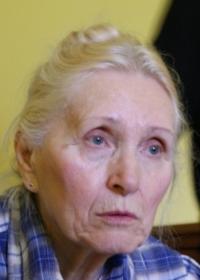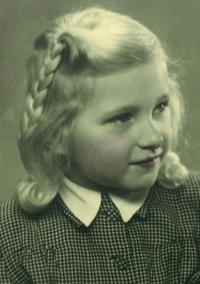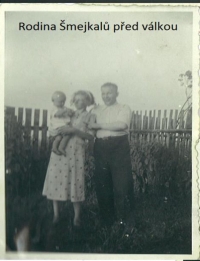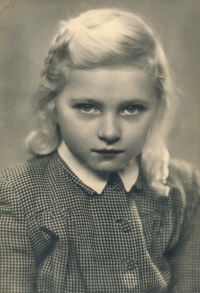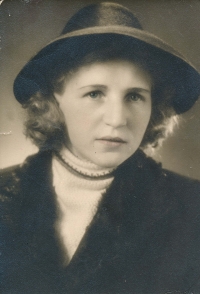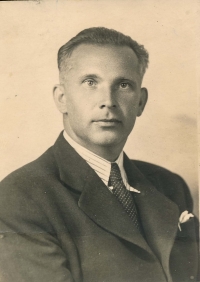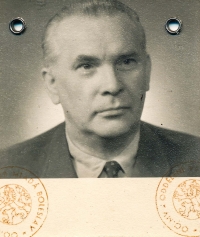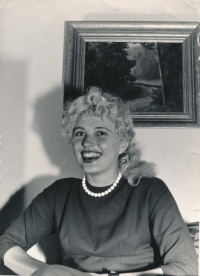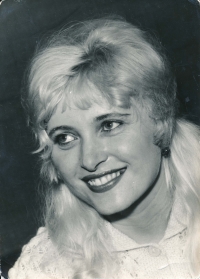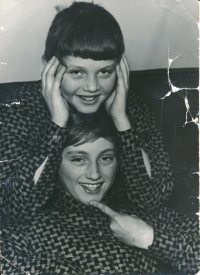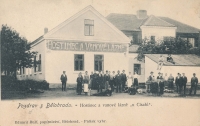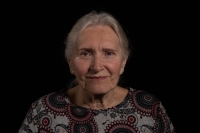I spent my childhood in a basement

Download image
Jana Kuncířová, née Šmejkalová, was born on the 18th of May 1937 into a tailor’s family. Three years later, in the spring of 1940, her father Jan Šmejkal left for Germany and soon afterwards he was arrested while attempting to escape to England and join the Czechoslovakian troops. The Berlin court found him guilty of high treason, he spent two years in a Nürnberg prison and then a year in the concentration camp in Dachau. After he left, Jana and her mother moved to Mladá Boleslav where they spent the war up until 1945 when Jana’s father came back in a terrible state. Jana first decided for a career in medicine but gave up in the second year of her studies and dedicated her life mainly to her family, caring for the children and later her parents. She was employed in the Vitana company in Byšice and worked there for the next 30 years. Today she manages the local Byšice library.
